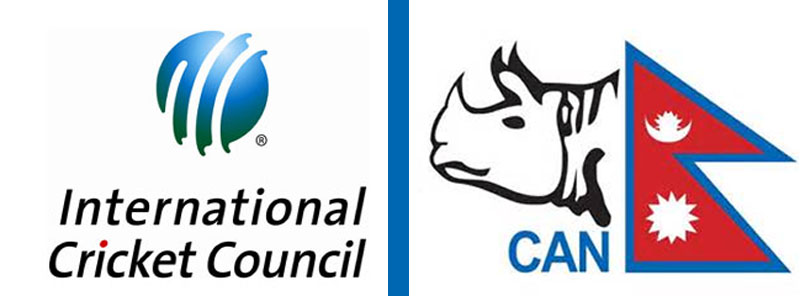ICC conditions to let Nepal host match against Namibia
KATHMANDU: The International Cricket Council put forth two conditions in front of Nepal to let it host the ICC World Cricket League (WCL) Championship round-three matches between Nepal and Namibia.
These matches are scheduled to take place on April 16 and 18.
Issuing a press statement on Wednesday, the world cricket governing body said staging the match in Nepal would be possible only if “an independent selection panel, including the national team coach and captain will select the Nepal team to compete against Namibia, with Asia Development Officer Venkatapathy Raju acting as an advisor,” and “Asia Development Manager Bandula Warnapura will undertake an inspection of the Tribhuvan University Ground to assess its suitability to host the matches, while a local security plan will be developed for the assessment and approval of ICC.”
“If these assessments are not passed, the matches will be relocated to an alternate venue outside of Nepal.”
Even if the conditions were met, ICC would prepare for and conduct the matches independently, it said.
ICC said it was in regular communication with both committees of the Cricket Association of Nepal – the elected one led by Chatur Bahadur Chand and the ad hoc led by Ramesh Silwal – as well as the National Sports Council.
“The National Sports Council has nominated Bhawana Ghimire to work with ICC as a local liaison in this regard,” the statement read.
The ICC move comes after authority of CAN was questioned as the government did not accept legitimacy of the Chand-led committee and formed another Silwal-led panel with a mandate to hold an election within three months.
A case over the issue is currently sub-judice at the Supreme Court.
“The governance challenges currently being faced by Nepal cricket are unfortunate to say the least,” said ICC Head of Global Development, Tim Anderson, in the statement.
“However, in the best interests of the game, the players and the fans, we are heartened by the cooperation of all parties in agreeing a set of solutions that allows these important matches to be played, and consideration given to them being played in Nepal.”






